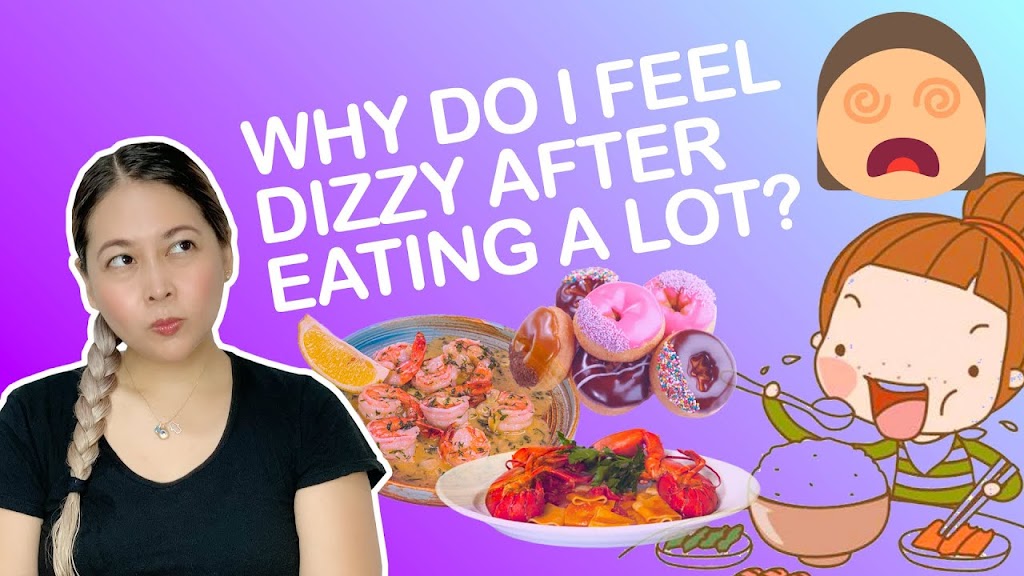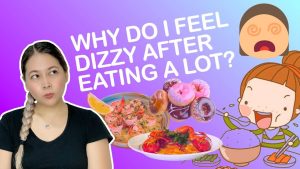After Eating Dizziness: Causes and Effective Management Strategies
Have you ever encountered a sudden sensation of dizziness or light-headedness following a meal? This experience can be rather discomforting and unpleasant. The causes of feeling dizzy after eating are diverse, ranging from minor factors like low blood sugar to more serious conditions such as postprandial hypotension or vertigo. In this article, we will delve into the common reasons behind post-meal dizziness and explore effective strategies for managing it.
- Low Blood Sugar: A prevalent culprit behind post-meal dizziness is low blood sugar, also referred to as Hypoglycemia. This occurs when you consume a carbohydrate-rich meal, causing a rapid spike followed by a sharp drop in blood sugar levels. Indications of low blood sugar encompass dizziness, perspiration, trembling, and bewilderment. Should you suspect that low blood sugar is the root cause of your post-meal dizziness, consider opting for smaller and more frequent meals throughout the day. Additionally, steer clear of high-sugar foods.
- Postprandial Hypotension: Postprandial hypotension denotes a decline in blood pressure subsequent to eating a meal. This phenomenon can lead to dizziness, a sense of light-headedness, and even fainting. It tends to be more prevalent among older adults and individuals with high blood pressure or disorders of the autonomic nervous system. To manage postprandial hypotension, adopting a habit of consuming smaller, frequent meals is advisable. Similarly, avoid standing for prolonged periods immediately after eating. Consult your healthcare provider regarding potential medication solutions for blood pressure management.
- Food Allergies or Intolerances: Dizziness following meals can also stem from food allergies or intolerances. Allergic reactions to certain foods can provoke inflammation and associated symptoms, including dizziness. Noteworthy food allergens encompass nuts, shellfish, eggs, and dairy products. If you suspect a food allergy or intolerance, maintaining a food diary and eliminating potential triggers from your diet might be beneficial.
- Gastrointestinal Issues: Specific gastrointestinal issues can contribute to post-meal dizziness as well. For instance, gastroesophageal reflux disease (GERD) can lead to stomach acid flowing back into the esophagus, causing heartburn and dizziness. Another condition, gastroparesis, characterized by impaired stomach emptying, can also result in dizziness after eating. If gastrointestinal problems are suspected as the underlying cause, consulting a medical professional for potential treatment options is recommended.
- Vertigo: Vertigo, characterized by a sensation of spinning or dizziness, can be prompted by various factors like ear infections, head injuries, and medications. Occasionally, certain foods like alcohol or caffeine can trigger episodes of vertigo. If post-meal dizziness is accompanied by other vertigo-related symptoms like tinnitus (ringing in the ears) or impaired balance, it is advisable to consult a healthcare provider for accurate diagnosis and appropriate treatments.
Conclusion
Feeling dizzy after eating can stem from diverse factors, ranging from low blood sugar to vertigo. Frequent experiences of this symptom or its co-occurrence with other manifestations warrant a consultation with a medical professional to identify the underlying cause and determine the optimal course of action. In the interim, adopting habits such as consuming smaller, regular meals, avoiding high-sugar foods, and maintaining a food diary can aid in pinpointing potential triggers.



